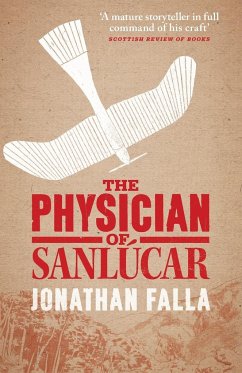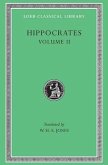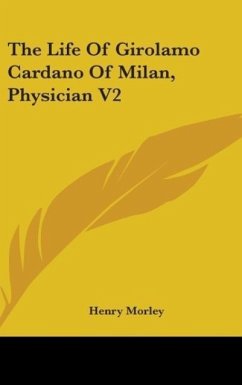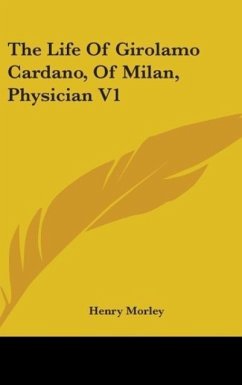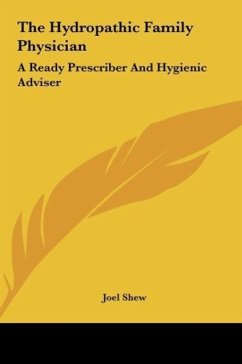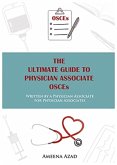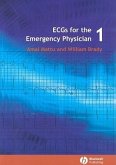Jonathan Falla
The Physician of Sanlúcar
14,99 €
inkl. MwSt.
Versandfertig in 1-2 Wochen

7 °P sammeln
Jonathan Falla
The Physician of Sanlúcar
- Broschiertes Buch
- Merkliste
- Auf die Merkliste
- Bewerten Bewerten
- Teilen
- Produkt teilen
- Produkterinnerung
- Produkterinnerung
A beautifully written and absorbing story of exile and redemption set against the stark Patagonian wilderness at the start of the modern age. A story of irresistible passion, and quiet courage in the face of savagery.
Andere Kunden interessierten sich auch für
![Prognostic. Regimen in Acute Diseases. The Sacred Disease. The Art. Breaths. Law. Decorum. Physician (Ch. 1). Dentition Prognostic. Regimen in Acute Diseases. The Sacred Disease. The Art. Breaths. Law. Decorum. Physician (Ch. 1). Dentition]() HippocratesPrognostic. Regimen in Acute Diseases. The Sacred Disease. The Art. Breaths. Law. Decorum. Physician (Ch. 1). Dentition30,99 €
HippocratesPrognostic. Regimen in Acute Diseases. The Sacred Disease. The Art. Breaths. Law. Decorum. Physician (Ch. 1). Dentition30,99 €![The Life Of Girolamo Cardano Of Milan, Physician V2 The Life Of Girolamo Cardano Of Milan, Physician V2]() Henry MorleyThe Life Of Girolamo Cardano Of Milan, Physician V244,99 €
Henry MorleyThe Life Of Girolamo Cardano Of Milan, Physician V244,99 €![The Life Of Girolamo Cardano, Of Milan, Physician V1 The Life Of Girolamo Cardano, Of Milan, Physician V1]() Henry MorleyThe Life Of Girolamo Cardano, Of Milan, Physician V143,99 €
Henry MorleyThe Life Of Girolamo Cardano, Of Milan, Physician V143,99 €![The Hydropathic Family Physician The Hydropathic Family Physician]() Joel ShewThe Hydropathic Family Physician56,99 €
Joel ShewThe Hydropathic Family Physician56,99 €![The Ultimate Guide To Physician Associate OSCE's The Ultimate Guide To Physician Associate OSCE's]() Ameena AzadThe Ultimate Guide To Physician Associate OSCE's18,99 €
Ameena AzadThe Ultimate Guide To Physician Associate OSCE's18,99 €![Sports Medicine for the Emergency Physician Sports Medicine for the Emergency Physician]() Sports Medicine for the Emergency Physician111,99 €
Sports Medicine for the Emergency Physician111,99 €![ECGs for the Emergency Physician 1 ECGs for the Emergency Physician 1]() Amal MattuECGs for the Emergency Physician 152,99 €
Amal MattuECGs for the Emergency Physician 152,99 €-
-
-
A beautifully written and absorbing story of exile and redemption set against the stark Patagonian wilderness at the start of the modern age. A story of irresistible passion, and quiet courage in the face of savagery.
Hinweis: Dieser Artikel kann nur an eine deutsche Lieferadresse ausgeliefert werden.
Hinweis: Dieser Artikel kann nur an eine deutsche Lieferadresse ausgeliefert werden.
Produktdetails
- Produktdetails
- Verlag: Aurora Metro Publications
- Seitenzahl: 226
- Erscheinungstermin: 25. Juli 2013
- Englisch
- Abmessung: 198mm x 129mm x 12mm
- Gewicht: 256g
- ISBN-13: 9781906582388
- ISBN-10: 1906582386
- Artikelnr.: 37029479
- Herstellerkennzeichnung
- Produktsicherheitsverantwortliche/r
- Europaallee 1
- 36244 Bad Hersfeld
- gpsr@libri.de
- Verlag: Aurora Metro Publications
- Seitenzahl: 226
- Erscheinungstermin: 25. Juli 2013
- Englisch
- Abmessung: 198mm x 129mm x 12mm
- Gewicht: 256g
- ISBN-13: 9781906582388
- ISBN-10: 1906582386
- Artikelnr.: 37029479
- Herstellerkennzeichnung
- Produktsicherheitsverantwortliche/r
- Europaallee 1
- 36244 Bad Hersfeld
- gpsr@libri.de
JONATHAN FALLA is an English writer now based in Scotland, the author of four published novels, ethnography, essays, short stories and drama. Falla was born in 1954 in Jamaica, where his father lectured in English Literature at the University of the West Indies. The family returned to England a year later on a boat laden with bananas. He grew up by the Thames in West London, and in North Wales where the family had an old mill house. He was at school at Bedales (Hampshire), and then won a scholarship to read English and Art History at Caius College, Cambridge from 1973 - 1977. He was closely involved with the establishment of the Cambridge Poetry Society and the first Cambridge Poetry Festival in 1975, and organised readings by (amongst others) Basil Bunting, Hugh Sykes-Davies and Richard Murphy. In 1978 he went to Java to work for an Indonesian publishing company, editing an educational magazine in the mountain city of Bandung. The publisher was also a printer, and Jonathan learned to print on venerable letterpress machines. While there, he spent much time studying the music of Sunda (West Java), learning to play the kacapi (zither), following the wayang (puppet) troupes and exploring the country. This time in Indonesia is at the heart of a novel, The White Porcupine , concerning the war of Independence. In 1981, Jonathan was hired by Oxfam to go to Karamoja (Uganda) during a famine relief operation. The often farcical nature of this formed the basis of a play, Topokana Martyrs' Day , which was produced at the Bush Theatre (London) in 1982 with a cast including David Threlfall and Jabu Mbalu. The play has now had six productions in London, Salisbury, Los Angeles, New York and on BBC Radio. It is perhaps unique: the only successful comedy about an African famine. It won Jonathan a vote as 'Most Promising Playwright' from London theatre critics (in Plays & Players magazine). The Karamoja experience prompted Jonathan in 1982 to begin nursing, firstly at Oxford, then at the London Hospital for Tropical Diseases, and finally at Aberdeen Hospital for Sick Children. In 1985-6 he was in Burma, training village paramedics in the Karen rebel free state of Kawthoolei. This strange encounter led to the ethnographic study True Love & Bartholomew: Rebels of the Burmese Border (Cambridge University Press). In 1991 he was Save The Children's medical coordinator in Darfur, West Sudan, at a time when the opening stages of the current Darfur crisis were being played out. This difficult time is at the heart of the novel Poor Mercy , published many years later. During the 1990s Jonathan was writing drama. A BBC feature film, The Hummingbird Tree , was shot in Trinidad with a local crew, and went on to win several awards. This helped Jonathan to gain the first Fulbright/T.E.B.Clarke Fellowship to study at the film school of the University of Southern California. The script that he wrote there concerned the Chinese occupation of Tibet. It was never filmed, but became his first published novel, Blue Poppies. Other drama productions included Down the Tubes , a play for community theatre in Edinburgh, and River of Dreams , a musical for children with composer Gordon Murch. He was also translator and scriptwriter for Diriamba! , a co-production between the Edinburgh Theatre Workshop and Teatro Nixtayolero of Nicaragua which won a 'Fringe First' on the Edinburgh Festival Fringe. Two other novels followed: Glenfarron , and The Physician of Sanlucar . He has written many short stories, which have been both published and broadcast, and in 2007 was shortlisted for the National Short Story Prize. He has also written numerous essays and book reviews for publications including the Times Literary Supplement, the Economist, London Magazine, Minnesota Review, The Scotsman and the Scottish Review of Books. He teaches arts for the Open University and St Andrews University, and in 2009 he was appointed Director of the St Andrews Creative Writing Summer School which he still continues to run. Jonathan's interest in tropical healthcare has taken him to Nicaragua and El Salvador, Brazil and Nepal, and he has also travelled in Chile, overland to India, in West Africa and through much of Europe. He continued in nursing until 2006, but then became a Fellow of the Royal Literary Fund, attached to Dundee University as part of an effort to raise standards in academic writing. In 2007 he was awarded a £30,000 "Creative Scotland" prize for work on a new novel. This project stems in part from his long involvement with a professional Early Music quartet for which he plays lute and woodwind and sings baritone. The group has made three CD recordings of 16th century music from Spain, France, England and Scotland, the most recent of which was an 'Editor's Choice' in The Gramophone. Jonathan married his wife Rona (a doctor) in Edinburgh in 1992. They live with their son, Kit, in rural Fife where Jonathan is a serving member of the Scottish Children's Panel.
